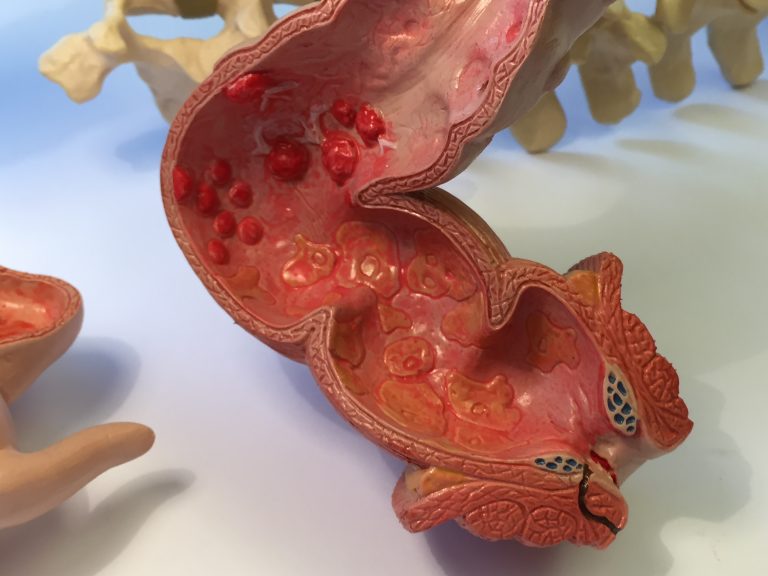
Scientists at Ben-Gurion University of the Negev (BGU) report that they are developing a novel therapeutic strategy for treating Inflammatory Bowel Diseases (IBDs) by sequestering inflammation-inducing molecules secreted by gut bacteria. The method, invented by Ehud Ohana, Ph.D., the department of clinical biochemistry and pharmacology at BGU, is based on findings from Ohana’s lab showing that gut levels of succinate, a metabolic molecule involved in various biochemical processes in living cells, were markedly increased in IBD, corresponding to changes in succinate-metabolizing gut bacteria.
Several recent studies show that succinate acts as a pro-inflammatory metabolite, in particular driving inflammatory activity of macrophages, according to the researchers.
The current microbiome study (“A transepithelial pathway delivers succinate to macrophages thus perpetuating their pro-inflammatory metabolic state“), which appears in Cell Reports, was conducted by Moran Fremder, a graduate student in Ohana’s lab (in the MD/PhD program) and in collaboration with Jae Hee Cheon PhD, from Yonsei University, Seoul, South Korea.
“The gut metabolite composition determined by the microbiota has paramount impact on gastrointestinal physiology. However, the role that bacterial metabolites play in communicating with host cells during inflammatory diseases is poorly understood,” write the investigators.
“Here, we aim to identify the microbiota-determined output of the pro-inflammatory metabolite, succinate, and to elucidate the pathways that control transepithelial succinate absorption and subsequent succinate delivery to macrophages. We show a significant increase of succinate uptake into pro-inflammatory macrophages, which is controlled by Na+-dependent succinate transporters in macrophages and epithelial cells. Furthermore, we find that fecal and serum succinate concentrations were markedly augmented in inflammatory bowel diseases (IBDs) and corresponded to changes in succinate-metabolizing gut bacteria.
“Together, our results describe a succinate production and transport pathway that controls the absorption of succinate generated by distinct gut bacteria and its delivery into macrophages. In IBD, this mechanism fails to protect against the succinate surge, which may result in chronic inflammation.”
Excess succinate in IBD patients
The approach targets and chelates excess succinate in IBD patients to attenuate its absorption, by using peptide sequences that mimic the succinate binding site in succinate binding enzymes. In parallel, biochemical methods will be used to measure succinate concentrations in biological specimens for a better diagnosis and content monitoring of IBD and related extra-intestinal symptoms. These technologies will be used as a companion tool to diagnose and treat IBD.
“Current treatments for IBD include antibiotics, steroids and biological treatments aimed at inhibiting the activity of the immune system. Such treatments can have long-term side effects, and none address the root causes underlying IBD which are largely unknown,” explained Ohana. “Our novel findings show that IBD is driven, at least partially, by changes in the activity of gut bacteria and by the accumulation of succinate in the gut, leading to chronic inflammation. Therefore, chelation of succinate can treat IBD and reduce inflammation. Furthermore, our therapeutic peptides are identical to molecules that naturally exist in our body and are therefore unlikely to provoke a harmful immune reaction.”
“This promising therapeutic approach developed by researchers at BGU is like that of diabetes treatment, wherein blood sugar levels are constantly monitored and adjusted using medication. It is therefore more dynamic and personalized than existing medications and is likely to significantly improve the quality of life of people suffering from IBD,” added Josh Peleg, CEO, BGN Technologies. “We have filed for patent protection and are now seeking a strategic partner for the further developing and commercializing this promising invention.”













